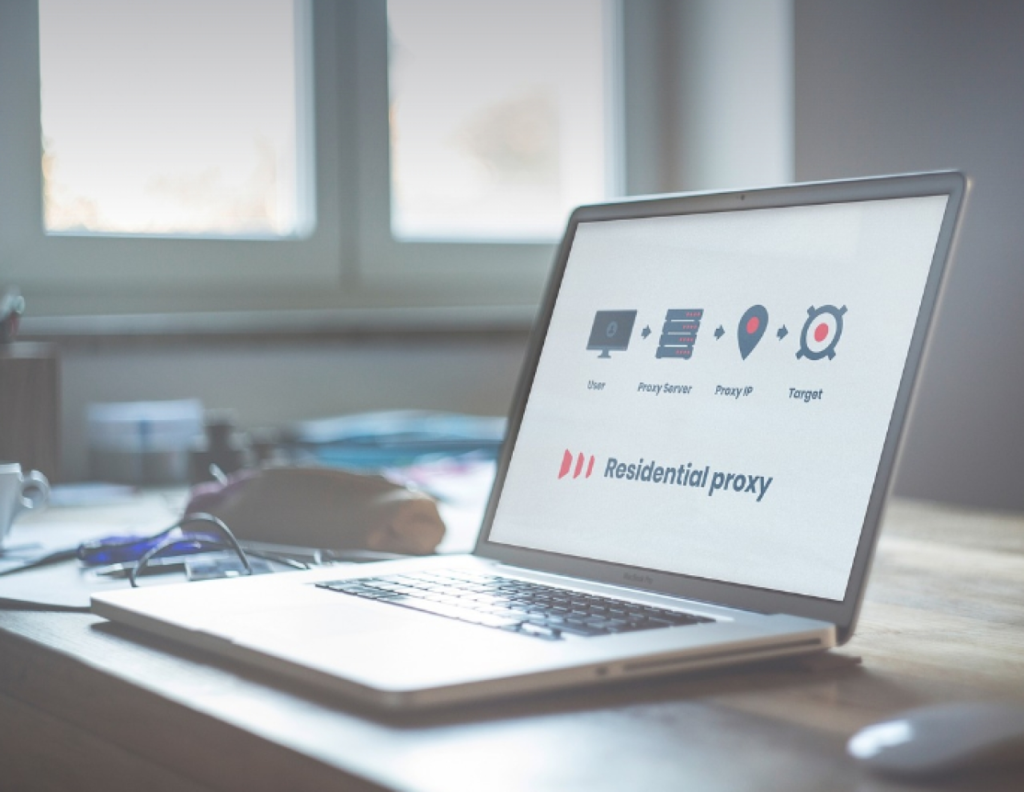Web scraping is a technique for extracting information from websites. Businesses and individuals often use web scraping to gather data for research, market analysis, and more. However, web scraping can be challenging due to various obstacles, such as website blocks and IP bans. This is where residential proxies come in handy. Let’s explore why residential proxies are essential for successful web scraping.
What are Residential Proxies?
A proxy server acts as an intermediary between your device and the internet. When you use a proxy, your internet requests go through the proxy server first. This helps mask your original IP address. Residential proxies are a specific type of proxy that uses IP addresses assigned to real residential devices. In other words, these IP addresses belong to actual homes and are not datacenter IPs.

What is Web Scraping?
Web scraping, or web data extraction, automatically collects data from websites. This is typically done using software or scripts that navigate web pages, extract the desired information, and store it in a structured format such as a spreadsheet or database. Web scraping can be used for various purposes, including price comparison, market research, sentiment analysis, and content aggregation.
Benefits of Residential Proxies for Web Scraping
1. Avoiding IP Bans:
Websites often block IP addresses that make too many requests in a short period. Since residential proxies use real residential IPs, they are less likely to be detected and blocked by websites. This allows you to scrape data more efficiently and without interruptions.
2. Higher Anonymity: ‘
Residential proxies provide a higher level of anonymity compared to data center proxies. Websites find distinguishing between real users and web scrapers using residential proxies is difficult. This makes it easier to access and gather data without being flagged.
3. Access to Geo-Restricted Content:
Some websites restrict content based on the user’s location. Residential proxies can help bypass these restrictions by allowing you to choose IP addresses from specific countries or regions. This way, you can access and scrape data from websites that might otherwise be unavailable in your location.
4. Improved Success Rate:
Using residential proxies generally leads to a higher success rate in web scraping. Since they are less likely to be blocked and can access geo-restricted content, you can collect more comprehensive and accurate data.
Strategies for Optimizing Web Scraping with Residential Proxies
To make the most of residential proxies, it’s crucial to use them strategically.
1. Expand Your IP Pool
Having a diverse range of IP addresses lowers the risk of being flagged. The more IPs you have, the less likely you are to get detected.

2. Rotate Your Proxies
Regularly changing your IP address makes your web scraping activities less noticeable. Think of it as switching disguises in a game of digital hide-and-seek.
3. Target Specific Locations
For location-specific data, use geo-targeting with your proxies. This ensures you’re accessing the correct data from the right region without any mix-ups.
4. Control Your Request Rate
Adopt a measured approach to your request rate. Mimicking human browsing behavior with slower, steady requests helps keep your activities under the radar.
Implementing these tactics can enhance the efficiency and effectiveness of your web scraping endeavors. Residential proxies are a gateway to the digital world. Use them wisely to unlock a wealth of data.
Conclusion
Residential proxies are an essential tool for anyone engaged in web scraping. They help prevent IP bans, offer greater anonymity, provide access to geo-restricted content, and improve the success rate of data collection. By using residential proxies, web scrapers can operate more effectively and obtain the necessary information without unnecessary hurdles. Investing in residential proxies is a wise decision for anyone serious about web scraping.

